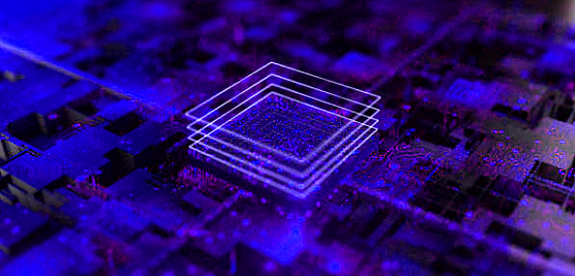Accredited InvestorsAltcoinAnatoli UnitskyAnti-Money Laundering (AML) In CryptoAPIArbitrageArtCoin TokenArticle DirectoryASICAuction Terminology GlossaryBasics of Stock Market InvestingBear MarketBest Crypto Payment Provider In the WorldBitcoinBlockchainBlockchain ConfirmationBlockchain Consensus MechanismBlockchain ForkBlockchain GlossaryBored Ape Yacht ClubBuild a Business That OutperformsBull MarketBuying SkyWay SharesByzantine Fault Tolerance (BFT) ExplainedCasascius CoinCentral Bank Digital Currency (CBDC)Centralized Crypto ExchangeCoinCoinsetCold WalletCollateralCommodity Futures Trading Commission (CFTC)Cross-Chain TechnologyCRUCrypto ExchangeCrypto GlossaryCrypto JokesCrypto Terms to KnowCrypto TickerCryptocurrencyCryptographyCryptojackingCryptounit BlockchainCryptounit GlossaryCryptounit ProgramdApp (Decentralized Application)Dead CoinDecentralized Exchange (DEX)Decentralized Finance (DeFi)Difference Between Bitcoin and EthereumDifferent Ways of Investing MoneyDigital CurrencyDistributed LedgerDo Your Own Research (DYOR)Dollar Cost Averaging (DCA)Dow Jones Industrial Average (DJIA)EncryptionERC-20ERC-721EthereumEvoScentFear Of Missing Out (FOMO)Fear, Uncertainty and Doubt (FUD)Fiat MoneyFNT Fintech CompanyGenesis BlockGlobal Unit PayGlossary of Banking TermsGlossary of Business TermsGlossary of Financial TermsHalvingHODLHot WalletHow Do I Start InvestingHow Rich is Satoshi Nakamoto?How to Create a BlockchainHow to Find Private InvestorsHow to Get Into FintechHow to Program Smart ContractsI Am Thrilled to Be a Part of This Global ProjectInitial Coin Offering (ICO)Initial Public Offering (IPO)Initial Token Offering (ITO)Innovation Basalt TechnologyInnovative Transportation TechnologiesInternational Bank Account Number (IBAN)Investing in Gold Mining StocksInvesting in Gold MiningJagerJoy of Missing Out (JOMO)Know Your Customer (KYC)LedgerLiquidity in CryptocurrencyMaker and Taker Fees in Crypto TradingMarket Capitalization (Market Cap)Meme CoinMetal Credit CardMetaMaskMillenials Now Have Access to Generational WealthMy Best Investment EverNew Digital EvolutionNFT GlossaryOff-Chain TransactionsOn-Chain TransactionsOpen Edition NFTPeer-to-Peer (P2P)Personal Loan GlossaryProbably the Best STO on the MarketProof of Stake (PoS)Real Estate Glossary of TermsReal Estate Investing GlossaryRebase TokenSecurities and Exchange Commission (SEC)Security Token ExchangesSecurity Token Offering (STO)Soulbound Decentralized Identities for Security TokensSoulbound ID Launch by Stobox Proves a SuccessSoulbound TokensStoboxStock Market GlossaryTestimonialsTether Platform and Token (USDT)UnitEx ExchangeUnitsky String TechnologiesUNTBUSDUValidatorWe Started Investing When We Were 25What are Blue Chip NFT?What are Blue Chip Stocks?What are Crypto Assets?What are Crypto Smart Contracts?What are CryptoPunks NFT?What are Digital Assets?What are Digital Collectibles?What are Gas Fees?What are Gas Wars?What are Hashmasks?What are Non Fungible Tokens?What are Non-Sufficient Funds (NSF)?What are Soulbound Tokens (SBT)?What are Stablecoins in Crypto?What are Transactions Per Second (TPS)?What are Utility NFTs?What are Utility Tokens?What Does Burning Crypto Mean?What Does Diamond Hands Mean?What Does Paper Hands Mean?What Does To The Moon Mean?What Does WAGMI Mean?What Happened to Satoshi Nakamoto?What is a 51% Attack?What is a Baby Boomer?What is a Backlink?What is a Banner?What is a Barcode?What is a Bid-Ask Spread in Crypto?What is a Block in Blockchain?What is a Block Reward?What is a Blockchain Address?What is a Blockchain Node?What is a Blockchain Oracle?What is a Blog?What is a Bond?What is a Bot?What is a Broker?What is a Business Accelerator?What is a Cash Cow?What is a Commercial Bank?What is a Commodity?What is a Con?What is a Credit?What is a Credit Limit?What is a Credit Rating?What is a Crypto Airdrop?What is a Crypto Bridge?What is a Crypto Scam?What is a Crypto Token?What is a Crypto Wallet?What is a Crypto Whale?What is a Crypto Winter?What is a Cryptocurrency Public Ledger?What is a Cryptocurrency Roadmap?What is a DAO?What is a Dark Pool?What is a Day Trader?What is a Dead Cat Bounce?What is a Default?What is a Derivative?What is a Digital Credit Card?What is a Fiscal Quarter?What is a Fungible Token?What is a Governance Token?What is a Grace Period?What is a Hard Fork?What is a Hot Wallet?What is a Hybrid Blockchain?What is a Hybrid PoW/PoS?What is a Joint Account?What is a Market Cap?What is a Merkle Tree in Blockchain?What is a Mining Farm?What is a Nonce? What is a PFP NFT?What is a POS System?What is a Prepaid Card?What is a Private Blockchain?What is a Private Key?What is a Public Blockchain?What is a Public Key?What is a Reserve Currency?What is a Ring Signature?What is a Routing Number?What is a Rug Pull in Crypto?What is a Safe Deposit Box?What is a Satoshi?What is a Security Token?What is a Seed Phrase?What is a Shitcoin?What is a Sidechain?What is a Soft Fork?What is a Spot Market?What is a State Bank?What is a SWIFT Code?What is a Tax Identification Number (TIN)?What is a Time Deposit?What is a Transaction Account?What is a Variable Interest Rate?What is a Virtual Assistant (VA)?What is a Virtual Card?What is a Virtual Currency?What is a Visa Card?What is a Whitelist in Crypto?What is a Whitepaper?What is Accounts Payable (AP)?What is AMA in Crypto?What is Amortization?What is an Accrual?What is an ACH Transfer?What is an Actuary?What is an Addendum?What is an Algorithm?What is an Angel Investor?What is an Annuity?What is an Asset?What is an ATM?What is an Atomic Swap?What is an Audit?What is an Avatar?What is an EIN?What is an Embargo?What is an Entrepreneur?What is an IDO (Initial Dex Offering)?What is an Interest Rate?What is an Internet cookie?What is an Investment Bank?What is an NFT Drop?What is an NFT Floor Price?What is an Ommer Block?What is an Orphan Block?What is an Outstanding Check?What is an Overdraft?What is Artificial Intelligence (AI)?What is B2B (Business-to-Business)?What is B2G (Business-to-Government)?What is Bartering?What is Bitcoin Dominance?What is Bitcoin Pizza Day?What is Blockchain Immutability?What is Blockchain Used For?What is BRICS?What is Business-to-Consumer (B2C)?What is C2C (Customer to Customer)?What is Capitalism?What is Catfishing?What is CFD Trading?What is Check Kiting?What is Cloud Mining?What is Communism?What is Content Marketing?What is Decentralization in Blockchain?What is DeFi in Crypto?What is Delisting?What is Depreciation?What is Digital Marketing?What is Diversification?What is Double Spending?What is Dumb Money?What is Dumping?What is Earnings Per Share (EPS)?What is Economics?What is Email Marketing?What is Equity?What is Etherscan?What is Fintech?What is Foreign currency?What is Forex?What is Fundamental Analysis (FA)?What is GameFi?What is Generative Art NFT?What is Gwei?What is Hard Currency?What is Hash Rate?What is Hashing in Blockchain?What is Inflation?What is Initial Game Offering (IGO)?What is Interest?What is Interest Income?What is Mainnet?What is Mastercard?What is Metaverse in Crypto?What is Mining in Cryptocurrency?What is Minting NFT?What is Mobile Banking?What is Money Laundering?What is NFT Alpha?What is NFT Metadata?What is NFT Rarity?What is NGMI Meaning?What is Nominal Interest Rate?What is Online Banking?What is Open-End Credit?What is OpenSea NFT Marketplace?What is Personal Identification Number (PIN)?What is Play-to-Earn?What is Polygon?What is Proof of Authority (PoA)?What is Proof of Work (PoW)?What is Public Key Cryptography?What is Pump and Dump?What is Quantum Computing?What is Refinancing?What is Retail Banking?What is Ripple?What is Sharding?What is Slippage in Crypto?What is Smart Money?What is Solvency?What is Soulbound ID?What is SSL?What is Staking in Cryptocurrency?What is Technical Analysis (TA)?What is Testnet?What is the Ask Price?What is the Better Business Bureau (BBB)?What is the Bid Price?What is the Dark Web?What is the InterPlanetary File System (IPFS)?What is the Gold Standard?What is the Lightning Network?What is the Prime Rate?What is the Sandbox?What is the Secondary Market?What is the World Bank?What is Tier 1 Capital?What is Tokenomics?What is TRC-20?What is Universal Banking?What is Unspent Transaction Output (UTXO)?What is Usury?What is Volatility in Crypto?What is Wash Trading?What is Web3?What is Whisper?What is XRP?What is Zero-Knowledge Proof (ZKP)?Who is Beeple?Who is Satoshi Nakamoto?Who is Vitalik Buterin?Why Tokenization is a Safe HavenWhy You Should Try Your Hand at Trading
On-Chain Transactions
- Home
- Cryptounit Glossary
- On-Chain Transactions
On-Chain Transactions, as the term implies, refers to blockchain transactions that are on the blockchain and have been verified by miners or validators. On-chain also implies that the transaction has been recorded on the blockchain.

On-chain transactions provide security and transparency since they cannot be changed once verified and recorded on the network. However, there are also disadvantages to on-chain transactions, such as higher fees and longer processing times.
How On-Chain Transactions Work
When two parties decide to trade cryptocurrency, the transaction information is bundled and time-stamped on a digital collection of data known as a block. That block is forwarded to a connected blockchain network, where it is validated by network computers known as nodes and added to the blockchain.
To verify transactions and add new blocks to a blockchain, many consensus processes are utilized. Bitcoin, for example, employs a system known as proof-of-work, which rewards miners for competing against each other by solving exceedingly complex computational puzzles in order to guess or match the "hash" and win the block reward.
Newer systems, like as proof-of-stake, do not involve mining computations, but instead require participants to lock up a certain amount of the native crypto token - their "stake" - in order to be the validator for a block of transactions.
Because transaction data is public and regularly reviewed and updated by the network of miners or validators, either procedure provides a high level of security and transparency. However, due to the complexities of the process, it takes some time to process each transaction and add it to the blockchain.
Furthermore, there is a good chance that transaction costs will be significant, leading to members preferring the off-chain alternative.
Timing
To keep blockchain transactions secure, verifiable, transparent, and fast, on-chain transactions are expected to occur in real time. In reality, however, this is rarely the case. Before confirming an on-chain transaction, it may take a long time to collect a sufficient number of verifications and authentications from network participants. In addition, each time a block transaction is added to the blockchain, miners must validate the transactions by utilizing computers to solve complex math problems.
If the transaction volume is high or the network is congested, it may take the miners longer to validate all of the transactions, especially if there are a restricted number of miners. As a result, the other parties involved in the transactions must wait for a resolution. Participants may, however, have the option to pay a transaction fee to expedite validation.
On-chain transactions are also costly, as miners command a fee for providing validation and authentication services in order to confirm a transaction on the blockchain in the shortest possible time. This cost might be quite significant at times, depending on the network's scalability and transaction volume.
For example, exorbitant fees have resulted in the Bitcoin Dust problem, in which fractional amounts of bitcoins cannot be transacted. However, for blockchain networks in their early stages, when transaction volume is low, fees may be very modest or none at all.
Pros of On-Chain Transactions
- Security - Data stored on a blockchain is encrypted end to end and cannot be modified once recorded.
- Transparency - The use of a distributed ledger means that transactions are recorded and validated in numerous locations at the same time. Anyone can track a transaction back to a unique wallet address and examine its activities using a blockchain explorer, allowing for independent verification of claims and transactions.
- Decentralization - Because blockchains are not governed by a centralized authority, there is practically no possibility of an intermediary breaching trust or distorting data flow.
Cons of On-Chain Transactions
- High transaction fees - When transaction volume is high, network fees climb as well. The network might become exceedingly expensive to utilize at times of heavy demand.
- Slow transactions - The speed of a blockchain transaction varies based on the volume of transactions waiting to be processed, which might cause network congestion.
- Power usage - The mining process, which is specific to proof-of-work consensus algorithms, consumes a significant amount of processing power and energy.
On-Chain or Off-Chain?
Whether an on-chain or off-chain transaction is preferable depends on the participants and what they value the most. If security, immutability, and a validated transaction are required, an on-chain transaction is likely to be preferable; but, if low transaction fees and speed are crucial, an off-chain transaction may be better.
Related Articles

Blockchain
The blockchain, as a distributed ledger technology (DLT), is purposefully designed to be very resistant to manipulation and fraud.

Off-Chain Transactions
On-chain storage is public while off-chain storage means the data is kept private, like any sensitive information stored in a private database or directory.

What is a Block Reward?
In addition to the block reward, miners may also earn transaction fees for including additional transactions in the block they are verifying. These fees can...

What is a Block in Blockchain?
Blockchain blocks are the data structures where transactions are permanently recorded. Each block holds some or all of the recent transactions that have not yet...

What is a Blockchain Node?
Within a network, nodes can have a range of duties, but the majority of nodes are responsible for tracking and verifying network transactions. Some nodes also function as...
- Home
- Cryptounit Glossary
- On-Chain Transactions